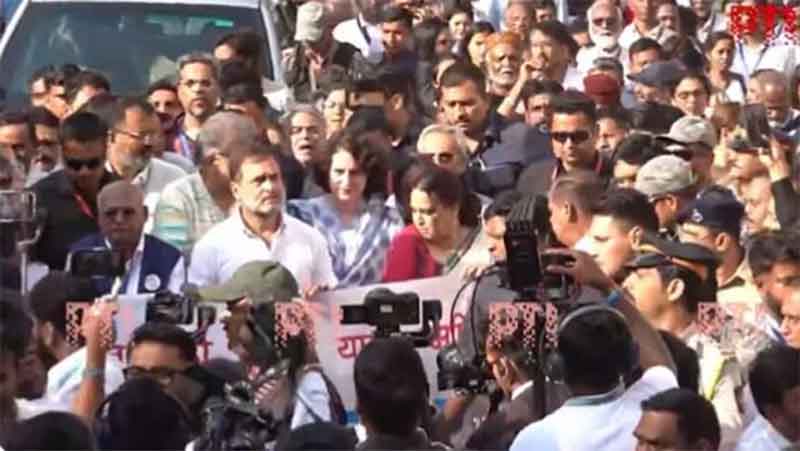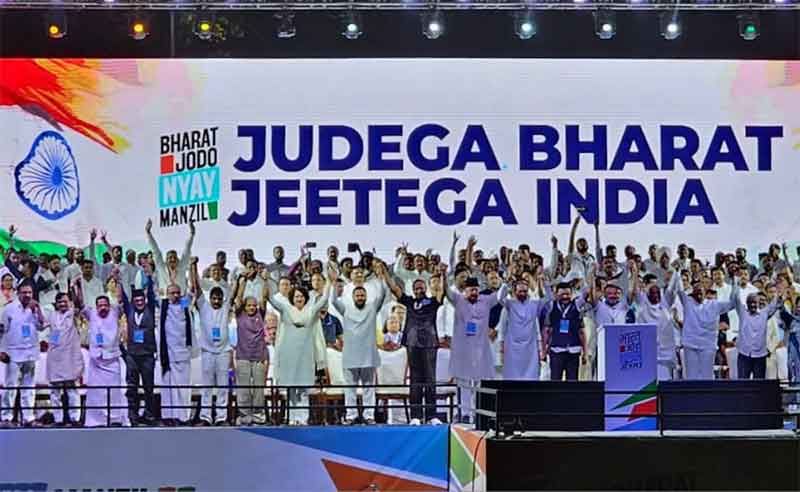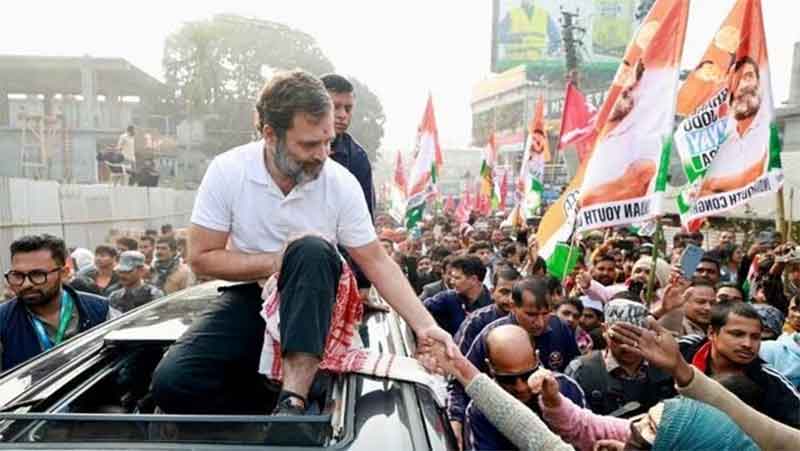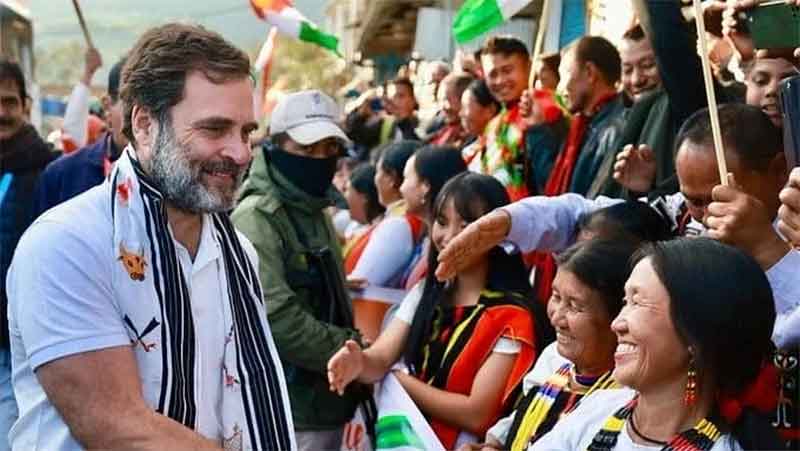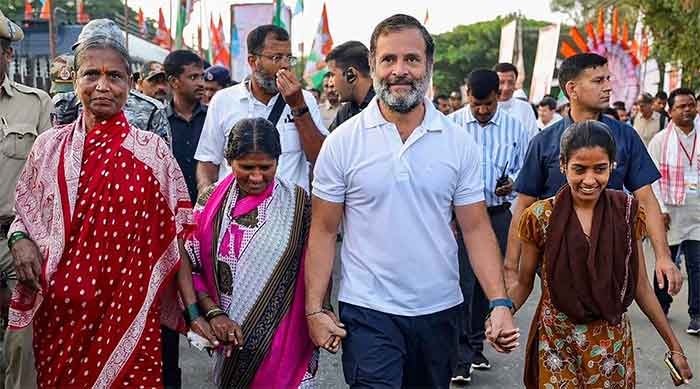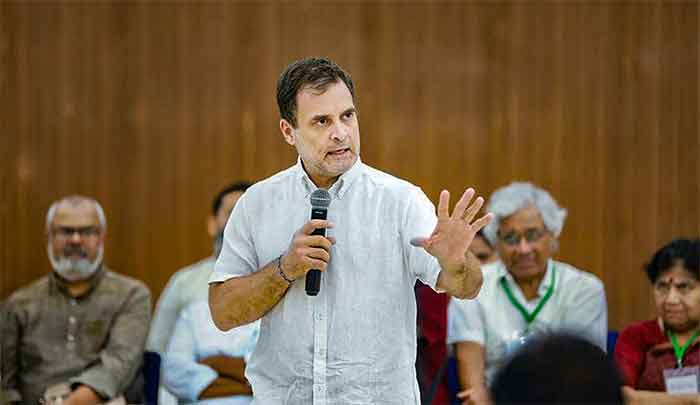
Bharat Jodo Yatra of the Congress Party has become a topic of much discussion in the media. The Congress has announced that it will organise a padyatra (foot march) which will start from Kanyakumari on 7th September and reach Kashmir in 150 days. During the padyatra, a route of about 3500 km will be covered through 12 states and 2 union territories. The Congress has taken all possible measures for the promotion and success of the yatra, and will continue to do so. One such measure is to involve civil society organizations, specific civil society members, intellectuals, writers, and others, in the yatra. In this connection, 150 civil society organizations attended a meeting convened in Delhi on 22 August.
The names of some civil society members/activists who attended the meeting also appeared in the media. It is said that civil society members/activists who were not called, or could not reach, or reached there but their names did not appear in the media – have become restlessness about their identity. Quite a few such people willing to join the yatra are looking for ways to come in the limelight. It has been said that the Congress had convened this meeting on the initiative and advice of certain civil society members, in which Rahul Gandhi remained present for some time and interacted with the people.
There is a need to consider the point of civil society members’ participation in the Bharat Jodo Yatra. By inviting the civil society members, the Congress has conveyed a message from the very beginning that the party is not prepared to make the yatra effective solely on the strength of its own organization. If the Congress thinks that members of the civil society will help to create the right atmosphere during the yatra, then this does not seem to be happening. This is so because most of these people are the ones who were initiated by Anna Hazare against the Congress at the ‘Ghat of Anti-Corruption’. They had announced the permanent disappearance of the Congress from the political scene after the formation of the Aam Aadmi Party. One gentleman among them had thrown mooth (magical weapon) wishing the immediate death of the Congress.
The Congress itself is watching the spectacle of its own downfall at the ideological and organizational level. But in the existential crisis in the Congress, the role of people who wished and cursed it for its demise comes second. Modi’s ‘Congress-mukt Bharat’ campaign could be placed at the third place in this case. It can be easily imagined what kind of atmosphere such people will create in favour of the Congress. If the Congress understands that gathering more and more anti-Modi civil society members will increase the strength and impact in favour of the Congress and the yatra, then it does not seem possible. On the contrary, as has been the case till now, it will provide more fertile ground for Modi.
So far the Congress has not clarified whether the ‘Bharat’ of Bharat Jodo Yatra is the new i.e. corporate-India (Nigam-Bharat), or the constitutionally accepted ‘real’ India – in which thousands die, day and night, in the construction process of ‘corporate’ India and continue to live on its margins? Needless to say, this appears to be a yatra for connecting units of corporate-India. Needless to say, corporate-India is already firmly and intrinsically united in itself. It’s builders and protectors have made their forts impenetrable against possible attacks. The Congress, which has been out of power for 13 years, wants to unite this very corporate-India in its favour. Its aspirations and efforts as a political party are obvious. More so, because it has been the party which actually laid the foundation of corporate-India in nineties.
The civil society members who wanted to join the yatra did not raise the question of corporate-India and real India in the meeting of 22nd August. This was obvious because these are the same members of civil society who uphold corporate-India. From the World Social Forum (WSF) to the Anti-corruption Movement/Aam Aadmi Party, they themselves have proved this fact time and again. Now they are again with the Congress. Tomorrow, if Kejriwal decides to come into power against the RSS/BJP by pushing the Congress back, these people will quickly go with him. Some regional leaders who strategically oppose the RSS/BJP with the intention of securing their own political power will throw their lot with him as well. In this way the services of such people will always be available for corporate-India. They are all hidden neo-liberals. The present communal fascism hovering over India is a by-product of neo-liberalism. In fact, these people have taken the resolve not to allow the people of the country to be directly involved in the country’s political scenario. That is why their claim on the real India does not have merit. When in a country/society the illusory role of civil society drains away ideology and commitment from politics, such squabbles happen on a daily basis!
It is good for democracy that the Congress has organized Bharat Jodo Yatra. Corporate-India also needs to have some claim on some form of democracy. It is good for politics in general too. Neo-liberal corporate politics in its first phase accelerated the trend of a-politicization among people. In the second phase, starting around 2010, it started giving rise to the trend of ill-politicization, which was soon fueled by Narendra Modi and his miniature, Arvind Kejriwal. If there are padyatras of political parties in India or state-specific events, there will always be possibilities of some constitutional politicization of citizens.
However, it is difficult to call this yatra of the Congress as ‘Bharat-Yatra’ even in the sense that corporate-India views it. Only 12 states out of 28 and only 2 union territories out of 8 will fall in the way of the yatra. Upon drawing attention to this aspect of the Bharat Jodo Yatra, a Congress leader said that the yatra from South to North can be followed by another yatra from East to West. If the Congress organizes padyatras across India primarily on the strength of its grassroots workers, and works towards creating a direct dialogue with the people, it will surely find new grassroots workers and sympathizers all over the country. This may put some check to the rapid erosion of the Congress. For the crisis-ridden Congress, this achievement will outweigh the direct political gains.
The issues raised during the yatra – politics of fear, bigotry and prejudice, livelihood-destroying economy, unemployment, rising inequality etc. – are not new. These issues persist in the statements and press conferences of the Congress and some other anti-BJP parties, on social media of the secular camp and in many small magazines. Members of civil society who will join the yatra without any expectations or resolutions of their own might say that it will be a great achievement to reach out to more and more people about these issues through the yatra. But to say so would be creating further illusions among the public. It will not take long for these 150 days to pass. Notwithstanding the Bharat Jodo Yatra, corporate-India will continue to be controlled and operated by the corporate-communal nexus.
Rahul Gandhi has said that this padyatra is a penance (tapasya) for him, and he is ready for a long fight. Penance is a meaning-laden word. Many other words can be used to describe the importance of the exercise of mobilizing the masses in favour of one’s party for the attainment of political power. The use of the word tapasya for this exercise would be called Arth-Sankoch i.e., a lesser meaning of the word. This word can get a little closer to its meaning if the Congress distributes written pamphlets during the Bharat Jodo Yatra stating that all laws related to Education, Labour, Agriculture and Public Sectors enacted under the neo-liberal policies in the last 30 years will be repealed as and when the Congress returns to power at the center, and that all laws that have been made with respect to enterprises and other national assets will be repealed; all policies and laws shall be framed in the light of the ‘Directive Principles of State Policy’ enshrined in the Constitution of the country; by law no political party/leader will be allowed to make political use of religion; and institutions damaged in the neo-liberal era will be effectively rebuilt so that the constitutionally guaranteed freedoms and rights of a single citizen are not violated.
If this happens, unemployment and economic inequality can be countered after sustained efforts. Simultaneously, a concrete counter-narrative of the RSS/BJP can be created. Then there would be no need to invite separate civil society members/organizations. Those who genuinely want the restoration of a constitutionally socialist, democratic, secular India, they alone will automatically join the yatra.
(The writer associated with the socialist movement is a former teacher of Delhi University and a fellow of Indian Institute of Advanced Study, Shimla)

